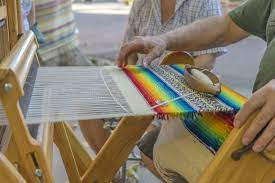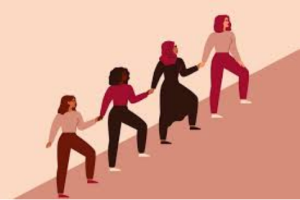
The very old friendship and cooperative relationship between Ethiopia and Morocco is moving to new levels of practical cooperation, from the political to the economic sphere of partnership. The Ethiopian Herald recently approached, Ambassador of Morocco to Ethiopia and Djibouti, Nezha Alaoui M’hamdi to discuss on the relationship between Ethiopia and Morocco in terms of business and people to people ties. Ambassador Nezha says the practical application of the new cooperative partnership between the two countries can be exemplified in many ways.
The Ambassador also expresses the partnership between the Kingdom of Morocco and the Republic of Ethiopia: “I just think that we are going to a new dynamic that is very logical and normal taking in to consideration the legacy that we have together” “
Of course, the relations between Morocco and Ethiopia are not new. We have old ties of cooperation, especially since the visit of his majesty [King of Morocco] to Ethiopia.” Today, the two countries witness a new impetus or a new momentum that they are sharing together in terms of partnership other than normal; it is South-South partnership, she explains. “We believe in Morocco that SouthSouth Cooperation is very important because today the two African countries are much better than before.” Ambassador Nezha also expresses the two countries can help each other in various sectors of cooperation, especially those related to sustainable development like human resource, environment, health, education and infrastructures for the mutual benefit of our population and to create socio-economic growth in both countries.
According to Ambassador Nezha, Cultural relations and cooperative partnership across borders Ethiopia and Morocco now signed a total of 12 agreements under the legal framework of Morocco and Ethiopia. With these agreements, the two countries are going to diversify their cooperation and partnership. They are sharing expertise by looking at interests of both countries to help each other. In this regard, the two countries have so far signed many business and investment agreements. The two countries so far agreed up on the total of 12 agreements and Memorandums of Understanding in the areas of agriculture, water management, sustainable energies, fertilizers, and trade promotion.
For example, one of the agreements is signed for the establishment of a fertilizer production unit in Ethiopia with a total capital of 2.5 billion USD in the first phase, and 3.7 billion USD in total, she disclosed. Ambassador Nezha further says one of those agreements is related to the OCP fertilizer plant, which is going to be finalized in Dire-Dawa, in order to help secure fertilizer for the Ethiopian agriculture. This reflects shared vision of South-South Cooperation rooted on both sides, that African natural resources should be harnessed to drive Africa’s development and shared prosperity, she added.
Apart from creating legal agreement frameworks, the two countries held business forums, the first in Addis Ababa, on November 2016, and the second one in Rabat on May 2017. “To unleash the potentials in both countries, we are now planning to have other two trade and investment events between next September and October here in Addis Ababa.”
Until today, the embassy is registering Moroccan investors with big interest to come to the Ethiopian markets including the OCP project. Because investors in morocco believed that Ethiopian markets is huge and it represents big potentials. “We all agree to say that Ethiopia has a success story with double digit growth and we would like to participate and contribute to that dynamic.” In cultural aspect, the Ambassador said Ethiopia is a multi‐ethnic nation with diverse culture, language, religion and ethnicity.
The country has also centuries old culture, norms and practices of living in tolerance, mutual respect and in peace among peoples of different sects of culture, religion and ethnicity. “Beyond being an asset of coexistence and mutual understanding for the country, this firmly entrenched culture has made the nation unique and symbol of tolerance for the rest of the world,” Ambassador Nezha says. She also noted that Ethiopia’s identity promote respect and guarantees greater opportunities to accumulate wealth and prosper.
Those elements are also the longstanding culture of Ethiopians, accepting and valuing diversity and living in harmony and peacefully. Ethiopia, this hospitable, centuriesold nation, has a special place in the collective memory of Moroccans, as well as of Muslims as a whole. In the Moroccan memory, Ethiopia will always be associated with our roots, history and identity, as a group of travelers walked through this blessed land, on their journey from Yemen and the Levant, to settle in what later to become Morocco, the Ambassador states. Similarly, Muslims will always remember the Kingdom of Axum, which granted refuge and protection to a group of companions of the Prophet Muhammad, the Ambassador says. “The Ethiopian and Moroccan nations have so much in common.
They both belong to great African civilizations and have a time-honored history, which relies on them to operate an effective take-off.” “Morocco, like Ethiopia, believes in Africa as a Continent drawing its strength from its own determination. Morocco and Ethiopia are both lands of tolerance and coexistence between different and diversified ethnic groups.” Indeed, both counties have a common vision on supporting coexistence, peace and security in the African Continent and believe in the ideals of unity and solidarity between nations.
The people to people ties have been showing significant progress from time to time, with a highly increased number of visitors and tourists from the two sides. Of course, taking the geographical distance between Morocco and Ethiopia into consideration, anyone can assume lack of common values in both countries. But, there are core values in common. In the daily life situation, the core values of the two civilizations are related to our identities, civilizations, history, tolerance between religions, coexistence, firm and strong determination to move forward, and success stories in development. Ambassador Nezha finally expresses that Ethiopia and Morocco have cultures and traditions much similar with the Ethiopians.
For instance, in Morocco, “we have a kind of music and dance very similar to the Ethiopian ones. We use the instrument that is very famous here which is Masinko, we also use it in Morocco. In addition, in both countries, food is served with similar instrument, which is clay pot; in Ethiopia it is called Shekla.” Hence, “we hope the cultural events to be shared with competent Ethiopian authorities here in Addis Ababa will help them to know and discover each other better. I think it would also be significant to make the countries much closer and well known to each other than we think.”
Herald December 22/2018
BY ZELALEM GIRMA




